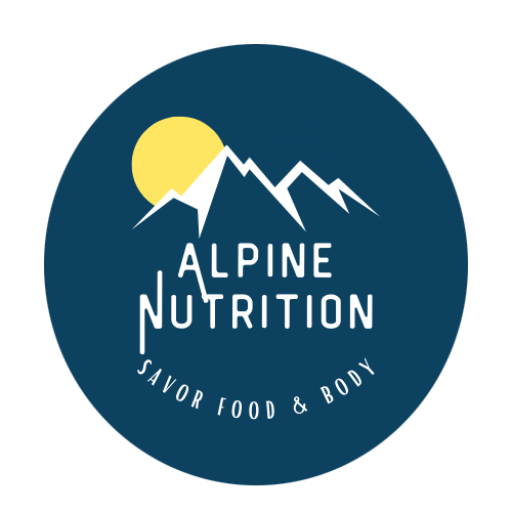I am so confused about supplements! Do I need to take a multi-vitamin? What about Omega-3’s? I’ve heard green tea extract will help my mental focus?
Dietary supplements are meant to supplement your food intake. They may include ingredients like vitamins, minerals, herbs, enzymes, anti-oxidants, or amino acids.

But do you know which ones are legit?
In 1994, the Dietary Supplement Health and Education Act (DSHEA) classified dietary supplements as food. Meaning that the Food and Drug Administration cannot regulate supplements as strictly as they regulate drugs.
This is why the supplement industry is a bit like the Wild West – unpredictable, with dodgy characters ready to rob your wallet any chance they get.
However, if you do a little homework with trusted sources and know what you are looking for, that can help ease stress and save you money.
Since dietary supplements are considered food, this impacts the way companies market their products. For example, marketing statements can promote how a supplement supports the structure or function of the body but it cannot claim to treat a specific condition.
Here are some cautionary tips to help you navigate the supplements aisle at your local natural food store or holistic pharmacy.
- Dietary supplements need to have backed up their claims through legit scientific studies done on humans with statistically significant results and designed as a double-blind, placebo-controlled study. This means that neither the researcher or the participant know if they’re taking a placebo or active ingredient.
- Research product reviews, through ConsumerLab.com for legit feedback on the product.
- Your stage of life, including age, gender, pregnancy, etc., may dictate which product is right for you. Always check with your healthcare practitioner prior to taking a new supplement.
- In addition to reading labels, look for “seals of approval” which will indicate that the product has gone through quality tests and is in compliance with the FDA’s good manufacturing practices. Examples of these organizations include Consumer Lab Approved Quality Product Seal, NSF International Dietary Supplement Certification, and U.S. Pharmacopeia (USP) Dietary Supplement Verification Program.
Remember to stay curious and do some research before purchasing.
Keep in mind, just because it’s a dietary supplement that you bought in a health food store, doesn’t always mean it’s safe nor natural. Sad but true.

Supplements can still have interactions with each other and any medications you’re taking. Remember, supplements don’t have to follow FDA guidelines for quality ingredients.
After glancing through the product reviews of dietary supplements on Consumer Labs, there were many supplements that didn’t pass their quality testing standards – even though the product labels contain words like healthy, nutrition, miracle (RED FLAG word), and natural listed on their labels.
Don’t be fooled by the price either! According to Consumer Labs product reviews, the more expensive the product didn’t mean higher quality. In fact, many high-end brands didn’t have ingredients listed or failed to earn quality seals of approval.
The bottom line, check with your healthcare practitioner to see if you need a dietary supplement first. Second, ask them what brands they recommend. Finally, STILL DO RESEARCH!
Remember, not all supplement companies are created equal. And just like you wouldn’t walk into a dusty saloon in the Wild West and blindly take a recommendation of who’s the most trusted person to leave your saddlebags with (aka your wallet), don’t blindly take supplement recommendations from folks either.
Stay up-to-date with other Savor Food & Body recommendations and tips by becoming an Alpine Nutrition Insider. You’ll receive a monthly newsletter filled with tips, resources, and recipes to support your Savor Food & Body journey. Sign up HERE!
References:
ConsumerLabs.com. (2019). Retrieved https://www-consumerlab-com.tcsedsystem.idm.oclc.org/
FTC cracks down on false advertising in dietary supplements. (2014, February 14). [Blog post]. Retrieved from: https://www.morganlewis.com/~/media/files/publication/lawflashclient%20alert/food%20industry%20lawflash/foodindustry_lf_ftccracksdownfalseadsdietarysupplements_27feb14.ashx
National Institutes of Health Office of Dietary Supplements. (n.d.). Frequently asked questions (FAQ). Retrieved October 30, 2019, from https://ods.od.nih.gov/Health_Information/ODS_Frequently_Asked_Questions.aspx#RDAandDV
Silliker, Inc., & Food Consulting Company. (2013). Silliker nutrient and health claim the U.S. and Canadian regulatory guide. Retrieved from http://drupaltesty.foodlabels.com/pdf/foodlabels.com_regulatory-guide.pdf
Ventola, C. L. (2010b). Current issues regarding complementary and alternative medicine (CAM) in the United States. Part 2: Regulatory and safety concerns and proposed government policy changes with respect to dietary supplements. Pharmacy and Therapeutics, 35(9), 515-522. Retrieved from http://www.ncbi.nlm.nih.gov/pmc/articles/PMC2957745/




